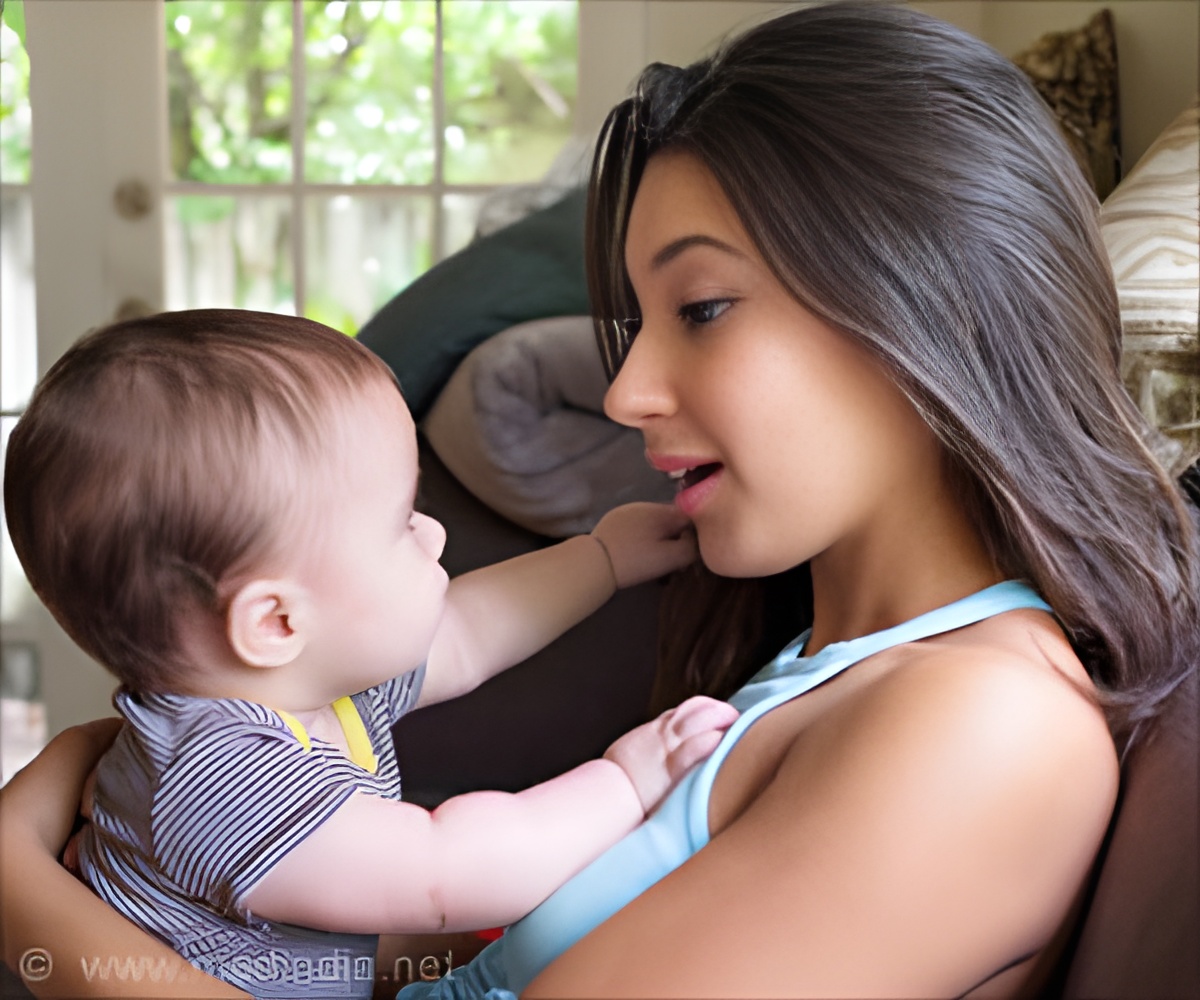Parents may not understand a baby's babbling and prattling but by listening, responding and communicating with them, they can actually help speed up their child’s language development.

Learning to talk is one of the major milestones in a baby’s life. You go gaga over your baby's simple “oohs” and “aahs” and anxiously wait for that special moment when the baby utters “mama” or "dada" for the very first time.
Till they can express themselves in words, babies communicate through crying, babbling, pointing and other gestures whether they are hungry or tired or simply uncomfortable. When you respond to a baby’s cooing with a smile or some vocalization of our own, they babble even more.
When you continue talking to the baby in this way, you reinforce the development of the infant’s language in many ways. New research has now shown that the more the mothers respond to their babies’ vocalizations, the sooner their babies develop their language, thus building on those early brain connections and giving them the best start to life.
As parents many a times we don’t understand the reasons behind the baby’s babbling, but now scientists say that we should respond to the infant's babbling, because doing so would let them know that they can communicate which in turn leads to forming complex sounds and using language more quickly.
Scientists from the University of Iowa and Indiana University who conducted this study and published their findings in the journal Infancy, found how parent’s response to their children's babbling can actually shape the way infants communicate and use vocalizations.
The researchers tracked and monitored the interactions between 12 mothers and their 8-month old babies for 30 minutes twice a month over a six month period. During each interaction session, the scientists noted down how mothers responded when their child made positive vocal sounds, such as cooing and babbling, which were directed at the mother.
They found that when mothers responded positively towards the babbling of their babies, their baby also showed greater advancement in language development. The babies made more advanced consonant-vowel sounds or in other words their babbling started to sound more like words. As time progressed these babies began to direct more of their babbling towards their mothers.
On the flip side, infants whose mothers did not respond much to their baby’s cooing and instead directed their infants' attention at times to something else reportedly did not show the same rate of growth in their language and communication skills.
A month after the completion of the study, the mothers who participated in the study were made to complete a survey giving information about their infant’s language development. The survey results showed that babies whose mothers were attentive to their babbling during the study period produced more words and gestures at 15 months of age as compared to infants whose mothers who were less attentive to their babbling throughout the study.
In a recent study conducted by American researchers, it was seen that exposing infants to clear vocal sounds from birth helps them distinguish language from other noises. They noted that the babies, who were about seven months old, could differentiate talking from other sounds even when they could not see the person speaking.
The scientists also discovered that by the age of 11 months, before they could actually speak themselves, the infants had already learned to differentiate their mother tongue from other languages.
To help boost both the receptive and expressive language of your baby, respond and talk often to your baby…. these little things actually go a long way towards forming real words and conversations, so listen up and be proud of your baby’s accomplishment in every step of the way!
Source-Medindia









